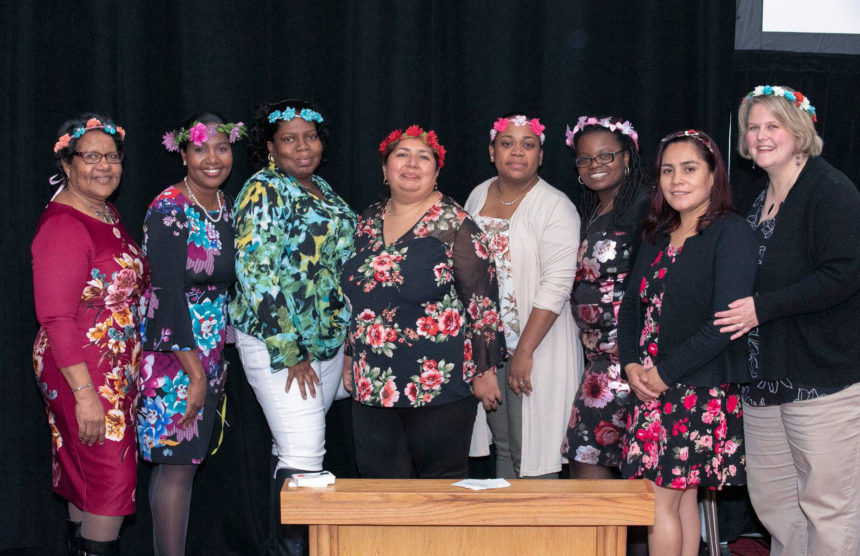Caring for the women in our communities can be challenging, especially if they come from a background or culture group very different from what we know or feel comfortable with. And yet, the Bible is very clear about who we are really doing this for, and why (because Christ wants us to)!
I have always, for the most part, enjoyed cooking, even though I would never consider that my cooking is anything extraordinary! When I was first married I would look up recipes and makes lists of the ingredients that I needed to buy. Some of those ingredients were expensive or hard to find. Over time I learned to seek out the things that were less expensive (on sale), or vegetables or fruits that were in season and not only tasted better but were economical! My meal planning started to evolve around what was available and in abundance rather than what I did not have. Not only did my meals seem to taste better but they were more fun and creative!
I have found this same approach also applies to ministry, especially ministry to women. We can be looking hard to start or do a ministry because we like it or a few others like it, or we can work to creatively meet the needs of women in our community. Sometimes we make our plans and then expect people to be a part of them. What Jesus did, and what we should do also, is take inventory of what the needs are and then find ways to meet them.
Matthew 25:35-40 New Living Translation (NLT)
“35 For I was hungry, and you fed me. I was thirsty, and you gave me a drink. I was a stranger, and you invited me into your home. 36 I was naked, and you gave me clothing. I was sick, and you cared for me. I was in prison, and you visited me.’
37 “Then these righteous ones will reply, ‘Lord, when did we ever see you hungry and feed you? Or thirsty and give you something to drink? 38 Or a stranger and show you hospitality? Or naked and give you clothing? 39 When did we ever see you sick or in prison and visit you?’
40 “And the King will say, ‘I tell you the truth, when you did it to one of the least of these my brothers and sisters,[a] you were doing it to me!’”
Sometimes we go ahead and do the things we have always been doing because we don’t know how to make a change or we don’t want to. Many of us have been blessed to be in communities that are changing and we find that God is bringing people to us from all parts of the world and the United States. What a great opportunity to make a timely change in the way “we’ve always done it”. However, that also involves some education on our part as to who is really in our community and what their needs are. We may make assumptions, but how accurate are those assumptions? For example, we may have many immigrants in our community that come from a traditionally different faith background – and yet, some very basic needs are the same in all culture groups, especially for women. Organize an event for the women and their children, or an ESL (English in a Second Language) class if that is a need in your community. Sometimes classes are offered in a community but not at a time or an educational level that people feel comfortable with. (You only have to speak English to teach English!) Praying during the class is a great way to introduce Christ in a non-confrontational way to people who may not know Him. Also, just as in cooking, sometimes we have to try, try, and try again – changing the meeting time or a few other elements until we get it just right.
Because a person speaks a different language or comes from a different culture is not a reason to believe that God doesn’t want you to reach out to her. You may find that you share many of the same interests or concerns. How do you find out what those are? Ask! Often children will translate for their parents so that you can at least have some communication. Or, find a speaker in the native language of the women you serve. You may also find that there is a “culture within a culture”. For example, you want to meet the needs of working women in a culture where women traditionally do not work. Or you want to provide a break for single mothers (plan an additional activity for their children). My grandmother first came to The Salvation Army because she was a maid and the Army provided a place for maids to go on their day off.
The greatest thing we can do for anyone is to share the love of Christ and to help her take the next step on her spiritual journey with Christ. The questions we must consistently ask ourselves is, who are the women in my community and what are their physical, mental, emotional, and spiritual needs? Since God wants everyone to be in a relationship with Him – today is the day God may you use you in surprising and new ways to meet the need of someone who was looking…and God sent you!

